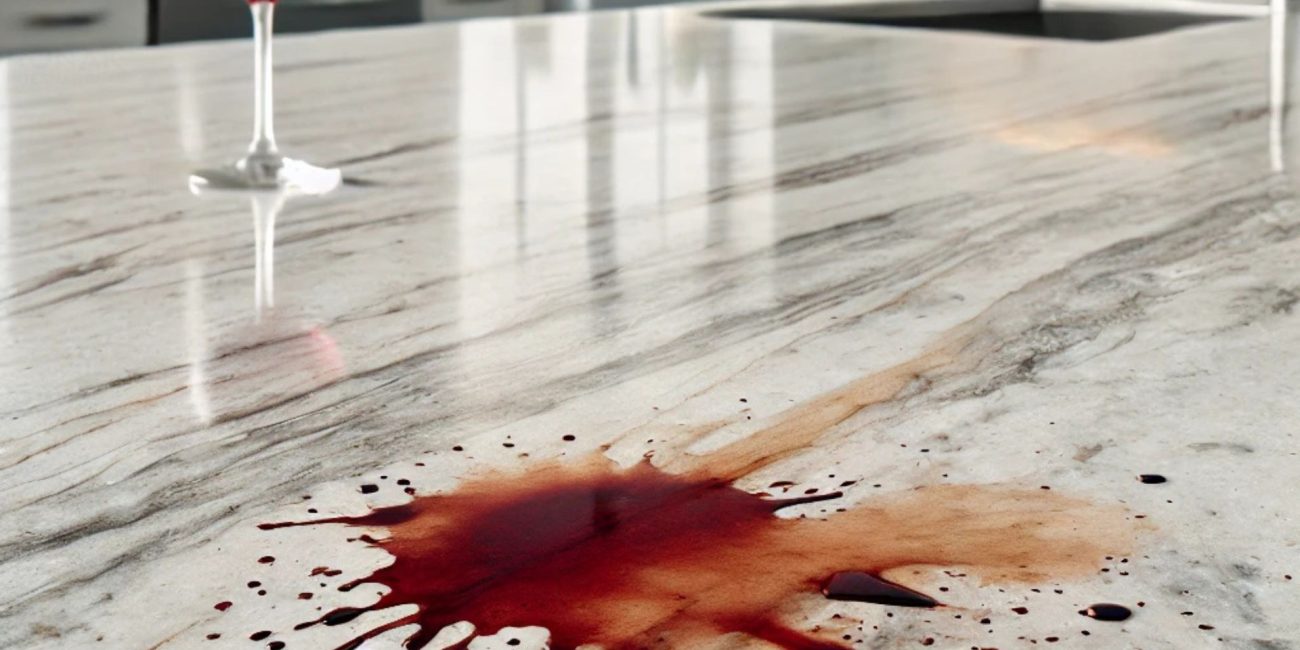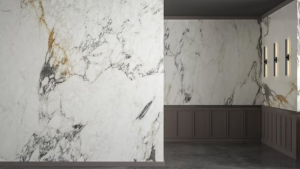White granite is a popular choice for homeowners seeking elegance and durability in their kitchen or bathroom spaces. However, one of the most common concerns is whether white granite stains easily and how to maintain its pristine appearance. While white granite is known for its stain resistance, it’s important to understand the factors that can contribute to staining and how to prevent them effectively.
This guide will explore the realities of white granite stain risks and provide practical tips for keeping your countertops looking as beautiful as the day they were installed.
Why White Granite is Popular in Kitchens and Bathrooms
Aesthetic Appeal of White Granite:
- White granite is admired for its clean, bright appearance, which makes kitchens and bathrooms look larger and more open.
- It has a timeless beauty that fits both modern and classic designs, adding elegance to any space.
- The natural patterns in white granite offer a unique look, making each piece one-of-a-kind.
Growing Popularity in Modern Designs:
- White granite is increasingly popular in new homes and remodels because it pairs well with a variety of colours and materials.
- Homeowners love that white granite can make a room feel fresh and inviting, reflecting light and creating a welcoming atmosphere.
- Its durability and stain resistance make white granite a practical choice for busy kitchens and bathrooms, where spills and messes are common.
Does White Granite Stain? Exploring Its Stain Resistance
Understanding Granite Porosity:
- Granite is a natural stone with tiny pores, meaning it can absorb liquids if not sealed properly.
- White granite, like other granites, is porous, but because it is light-coloured, stains may be more visible.
How Does White Granite Compare to Other Colors in Terms of Stain Risk?
- All granite types can stain, but white granite shows stains more clearly due to its colour.
Common Staining Agents on White Granite:
Substances likely to stain white granite include:
- Red wine
- Cooking oils
- Coffee
- Acidic foods like tomatoes and citrus
Although white granite can stain, proper care and sealing can effectively manage this risk.
Preventing Stains on White Granite
White Granite Stain Resistance: Sealants and Their Importance
Role of Sealants:
- Sealants are essential in protecting white granite from absorbing liquids that could cause stains.
- They create a barrier on the surface, making it harder for substances like wine, oil, or coffee to seep into the stone.
How Often Should White Granite Be Sealed?
- White granite should typically be sealed once a year, but the frequency can vary based on usage and the quality of the sealant.
- To determine if your granite requires resealing, place a few drops of water on the surface. If it absorbs within minutes, it’s time to reseal.
Recommended Sealants:
- Impregnating Sealants: These penetrate the stone and offer deep protection.
- Topical Sealants: Sit on the surface and provide a glossy finish.
- Popular products include brands like StoneTech, Granite Gold, and Black Diamond. For premium stones like Black Galaxy Granite, using a high-quality sealant ensures long-lasting shine and protection against stains.
How to Protect White Granite from Stains: Daily Practices
Immediate Cleaning:
- Wipe up spills immediately to prevent them from settling into the stone.
- Use a soft cloth and mild soap for everyday cleaning.
Avoiding Common Mistakes:
- Avoid harsh chemicals like bleach or ammonia, which can damage white granite.
- Don’t use abrasive sponges or cleaners that might scratch the surface.
Regular Maintenance:
- Weekly Care: Clean with a pH-balanced granite cleaner to maintain the sealant and shine.
- Monthly Care: Check for areas that might need touch-up sealing, especially in high-use zones like around sinks and cooktops.
What to Do If Your White Granite Stains
Stain Care for White Granite: Effective Removal Techniques
Identifying the Stain Type:
- Oil-Based Stains: Often caused by cooking oils, grease, or lotions. These stains may darken the granite.
- Organic Stains: Result from food, drinks, or plant-based substances like coffee, wine, or fruit juice. These stains can appear as brown, pink, or green marks.
- Inorganic Stains: Caused by substances like ink, paint, or metal rust. These may appear blue, green, or yellow.
DIY Stain Removal:
- Oil-Based Stains: Apply a baking soda and water paste. Let it sit for 24 hours, then wipe clean.
- Organic Stains: Use a mixture of hydrogen peroxide and a few drops of ammonia. Apply, let sit, and wipe off.
- Inorganic Stains: Create a paste with baking soda and water, or use a speciality stain remover designed for granite.
Professional Help:
- When to Call a Professional: If DIY methods fail, or the stain is too deep, it’s best to consult a professional. They have stronger chemicals and tools to remove stubborn stains without damaging the granite.
- Why Seek Expert Assistance: Professionals can assess the damage and apply advanced techniques like polishing or professional-grade sealants to restore your granite’s beauty. To ensure the best results, working with a top granite supplier can help you access high-quality materials and expert advice for maintaining your stone surfaces.
Long-Term Care Tips for White Granite Countertops
Enhancing Longevity with Proper Maintenance
- Impact of Regular Care: Regular care is essential to keeping white granite countertops in excellent condition. Consistent maintenance helps prevent stains, scratches, and dullness, ensuring the granite remains durable and beautiful over the years.
Annual Deep Cleaning and Resealing:
- Deep Cleaning: At least once a year, deep clean your white granite with a specialized granite cleaner to remove any embedded dirt or residue.
- Resealing: After deep cleaning, apply a high-quality granite sealant. This protects the granite from absorbing liquids, maintaining its stain resistance. Perform the water test annually to determine if resealing is needed.
Maintaining the Shine and Beauty of White Granite
Recommendations for Keeping White Granite Looking New:
- Daily Cleaning: Wipe down the surface daily with a soft cloth and mild granite cleaner to remove dust and minor spills.
- Weekly Care: Use a pH-balanced cleaner to prevent dulling and maintain the natural shine of the white granite.
Products and Tools to Maintain Shine:
- Polishing Products: Use granite polish to restore shine. Apply it monthly or as needed.
- Tools: Use non-abrasive cloths and sponges to avoid scratching the surface. Avoid acidic or harsh chemicals that can damage the finish.
Conclusion
White granite is a beautiful and durable choice for any kitchen or bathroom, but like any natural stone, it requires proactive care to maintain its pristine appearance. Regular cleaning, proper sealing, and immediate attention to spills are crucial for preventing stains. By following these practices, you can keep your white granite countertops looking as stunning as the day they were installed. To ensure high-quality materials and expert guidance, consider sourcing from a trusted granite supplier in the UAE, ensuring long-lasting beauty and durability.
Frequently Asked Questions
[helpie_faq group_id=’140’/]






